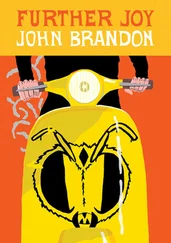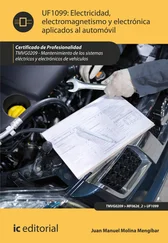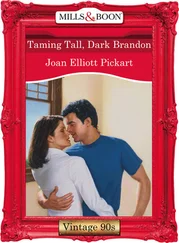She needed to convince her body that she was settled in New Mexico for the long haul, so she finally started putting away all the trucker’s things. She carried armload after armload of clutter to the extra bedroom, a room she rarely entered, and loaded up the closet until it was spilling. She stacked pictures on the bed, constructed mounds of knickknacks on the floor. Soon the window was blocked with extra chairs and wall racks. Dannie thought it odd that a person who lived in the desert owned a mirror with a cactus and a wolf on it. That’s what people did, though. People who lived near the beach filled their cottages with shells. In cities, people jammed their lofts with sharp, efficient gadgets.
Dannie got the idea that the trucker, like her, had moved to New Mexico to escape. In his case it was probably alcohol or pills, in her case the wreckage of a failed marriage and a mother who’d found religion and was impossible to talk to. As Dannie piled all the trucker’s belongings into the extra bedroom, she wondered if he would miss any of it. Dannie wished she could throw it all out, take it to the dump and keep the extra room for a study or a gym. Maybe the trucker wanted rid of all this shit but didn’t have the guts to do something about it, to turn it all over to the gulls at the landfill. Dannie wished she could mail every picture and bookend and paper towel holder to people she used to know. She was likely missing a staggering number of showers and weddings and housewarmings. She was way behind on gifts. She took a photo off the wall in which the trucker was skydiving, his thick gray hair popping out of his helmet, and carried it down the hall and tossed it on the pile.
Later in the day, tired from rearranging the condo, she sat on her balcony with two rock-hard avocados in her lap. It was finally chilly enough to wear a sweater. Dannie was considering returning the avocados. The idea would either burn off over the course of the day, like the desert haze, or it would gather. She’d bought the avocados the day before. They were nowhere near ripe, and she wanted guacamole. She could always buy guacamole at the restaurant where she bought her little batches of sopapilla, but there was nothing like spanking fresh guacamole. If she were in L.A. and had bought the avocados at the supermarket she would’ve returned them in a heartbeat, but the store in Lofte was a mom-and-pop place and they needed every sale they could get. Mom and Pop were old. Their store was failing.
Dannie, as sometimes happened when she was alone at the condo, was having dark thoughts about Arn. She suspected he was using her for a place to stay. There was circumstantial evidence, namely that he didn’t seem to have had a place of his own when they’d met. He had a topper on his pickup and Dannie was pretty sure he’d been sleeping in the bed of the truck and keeping his stuff in the cab. She’d never asked him to move in. He’d slept over for several nights, taking sick days off work, then one day he’d stayed at the condo all day when Dannie went out, then before she knew it there was a stack of his shirts on the dresser and bacon in the fridge. He was fully moved in and had never had to bring stuff from anywhere else, hadn’t carried in any lamps or books or spoken of a broken lease. Dannie didn’t have grounds to be indignant, since she was basically stealing Arn’s sperm, but she had grounds for good old romantic worry because she’d grown to like the kid. She imagined him up at that sonic observatory where he worked, and hoped he was imagining her at the condo. The owner of the observatory kept a huge poetry book up there, like 700 pages. No novels, no magazines, no puzzle books. The idea was that when the aliens contacted us, the first thing they would hear was our poetry, our most worthy expression. Dannie pictured Arn vacantly leafing through the humungous tome, letting the stanzas drift into and out of his mind, preoccupied with thoughts about her.
She sniffed the avocados. They smelled like California. She didn’t want to live in California ever again, but she thought she’d like to take Arn there. For all she knew, he’d never been out of New Mexico. He was a good guy. She wouldn’t be worrying about his motives, she knew, if they were the same age. She doubted a kid his age could genuinely be interested in her, knew how to be interested in her. She had lied and told him she was twenty-seven, then come clean and told him she was twenty-nine, but really she was thirty-three. She was thinking of taking Arn to where she grew up and she couldn’t even be honest with him about her age. Every relationship Dannie had ever been in had been farcical, and this one was no exception. What had ever led her to believe she could be married? In Los Angeles, to a guy from Los Angeles? Dannie was glad she hadn’t had a baby there. The baby would’ve turned out like her, thirty-three years old and with no idea who she was. She wanted to have a baby in a place where it could grow up to be itself, where it could take each morning and afternoon and night as it came, where it could live like Arn, relying on instinct rather than twisting itself in knots with scheming.
Arn worked nights, at a place where they monitored outer space for sonic anomalies. It was a rip-off of a government site in another part of the state called Very Large Array. All Arn did was sit in a chair all night and watch meters. Arn felt this job suited him because he didn’t care whether aliens existed. He didn’t mind solitude. Arn went to work with a gallon jug of water every night and drank the whole thing before morning. He had a taut bulbous belly, like a toddler. He had two nights a week off, and Wednesday nights he went with Dannie to the vigils. In a way, those were their most intimate times, right next to each other in a drawn-out silence — no sex or suspicion or anything else. The vigils were a sanctuary, where no one had a past or a plan. It seemed like bad form to show affection at the vigils, but sometimes Arn would take Dannie’s hand and hide it in his jacket pocket so he could hold it, like something valuable he’d found on the street, a good luck charm, and this reminded Dannie of misbehaving in high school. Dannie hadn’t noticed many other couples. There was a pair who looked like grad students, the guy in a flannel shirt and studded belt and the girl always wearing tights and scarves that didn’t match. Then there was a lesbian couple who sat with their knees touching. At first Dannie had dragged Arn down to the clinic, but now he didn’t seem to mind going. He wasn’t a vigiler in his own right, not yet anyway, but if you went to the vigils you went to the vigils. No vigiler was above any other. No one was on probation, no one received gold stars. No one had to give explanations or listen to them. It was enough to simply want the vigils to continue, and Dannie wanted them to continue forever, wanted to keep meeting these same strangers smack in the middle of each week until the weeks ran out. She knew for that to happen, Soren had to stay in his coma. She wanted the vigils to continue and she wanted Soren to wake up healthy. The vigils were good news in Dannie’s life and they could only be stopped by other good news.
Dannie stood and positioned herself behind the telescope. She aimed it down the street, whisked past the Javelina, past all four stoplights, until she found the market. The old couple was out front, eating their lunch. They were talking, and then the old woman noticed something at her feet. Her shoelace was untied. The old man unhurriedly set his plate beside him on the bench and went down to one knee. The woman smiled faintly. He was tying her shoe. He was tying her goddamn shoe. There was no way Dannie was going to return the avocados. She couldn’t. She knew what she’d do instead. She’d break them open and get the pits out and plant them down below her balcony. She could water them from up here. She could root for them. Root for them to root. They’d be something to wait for, to invest herself in. This was another way she could convince her body she was settled.
Читать дальше












